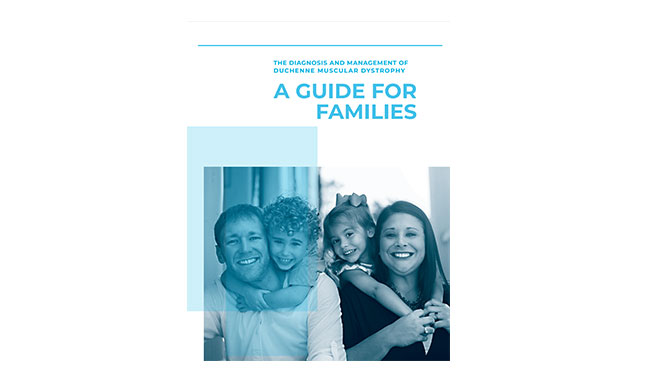Caregiver tips and tricks
Caring for yourself is one of the most important things you can do as a caregiver. Looking after your own health and well-being will mean you’re not ‘pouring from an empty cup’ and can take better care of your loved one. Try these simple steps to keep your body and mind healthy:
Make time for yourself
Taking time to do the things you love every day, such as sport, reading, crafts, or listening to music is important. These are the things that will remind you who you are as a person and help you balance the stresses of caring for your loved one if and when they arise.
Laugh often
Laughter really is great medicine. Watch some comedy, rewatch your favourite funny TV shows or go to a movie that tickles your funny bone. Finding things to laugh about with the loved one in your care will benefit both of you and it’s a great way to relieve any stress or tension!
Remember to fuel your body with nutritious food
A healthy diet will give you more energy and help prevent ill health in the future. Eat healthy, balanced meals with occasional treats to keep you fit and healthy. Investing in a slow cooker can be a great way to have easy, hot meals waiting for you at the end of a busy day.
Move your body every day
Small doses of regular exercise can really help to boost your energy levels and the good news is, you don’t need to go to the gym! Going for a regular walk is great if that’s all you can manage and you’ll soon build up your step count if you make it a daily habit.
Remember to have a social life
Staying connected to your family and friends, even if it’s just by phone or online, is incredibly beneficial for your mental health. Make sure you take time to talk about your life outside of being a caregiver.
You can find more health and well-being tips in the comprehensive guide for families. It contains all the latest information on how Duchenne muscular dystrophy (DMD) is diagnosed, how it progresses, and the types of support and care you and your family will receive to help you through this journey.
Explaining Duchenne muscular dystrophy to others
Telling your friends and family about DMD can be daunting, but it is a vital part of the coping process. Once people close to you know, they can serve as great pillars of support.
Decide who to tell1—3
While it is entirely up to you who you tell — or do not tell — it is usually a good idea to be open and honest with your loved ones about DMD.
In general, both adults and children can better deal with a situation if they feel they understand it. That is why it is important to provide the right amount of information about DMD and be willing to explain what it all means.
Start with the basics1—3
A good rule of thumb is to start by telling people what you feel they will be able to understand and accept.
- When talking to adults, go into as much detail as you feel is appropriate. You might like to have some information on hand — this can help you if you get stuck for what to say
- When talking to children, it is best to provide simple, age-appropriate explanations to help them grasp what is happening
Answer questions openly and honestly1—3
People may ask questions about DMD – it shows that they are interested and concerned about your child or young person. Questions are an opportunity to deal with any worries the person has together – with information and support.
Try to create an environment where people feel safe asking questions and sharing feelings. This is particularly important for children, as questions enable you to correct misunderstandings and help them express feelings.
Let people deal with the news in their own way1,3
You will probably find that different people react to the news in different ways. Some may want lots of information while others will not want to hear about the ‘medical’ side of DMD. Some may find it difficult to discuss feelings while others may not be able to stop. Some may want to surround themselves with people while others may wish to be alone.
Communicate what feels right for you and/or your loved one, and listen to what others tell you works for them.
Explaining Duchenne muscular dystrophy to your child
Download our age-appropriate books to help children learn about DMD.
It is important to stress that DMD is nobody’s fault. Explain that DMD is a disease that people are born with. Reassure your loved ones that nothing anyone did or did not do could have caused DMD.




Help explain DMD to your child with these downloadable comics
Getting the right support
A diagnosis of DMD can turn your world upside down, but you do not have to go through it alone. Family, friends, professionals and online communities can all serve as great pillars of support and comfort to fall back on in difficult times.
Types of support
There are two types of personal support networks and you should make use of both:
Informal support networks4
People who help out in a practical way and are there for you when you need them, like friends and family members.
Formal support networks4,5
Support from healthcare professionals, patient groups and professional organisations.
Having a strong network of supportive people that you can trust and fall back on means that you can:
- Get help with the practical aspects of life (for example, medications, childcare, schools, home adjustments, transportation and finances)4
- Have access to expert knowledge from healthcare professionals5
- Join an online community so you can talk, get advice and share stories with families who are experiencing similar things to you4
- Get reassurance and support at times when you might feel hopeless or alone4
How to build and strengthen your support network
It can be easy – albeit unintentionally – to give less time to your friends and other loved ones after a DMD diagnosis. You may find yourself busy taking care of your family, your priorities may change or you may feel too emotionally drained to see other people. However, making time to maintain your support network is critical. Try these steps to strengthen your network:
Touch base often4,6
Make an effort to catch up with family and friends on a regular basis. This does not always have to be face-to-face – a simple phone call or email will suffice.
Life hack: If you are short on time, try writing out a ‘template’ email that contains all your family news. Later, you can personalise the content depending on who you are writing to.
Allow people to help4,6
It can be hard to ask for or accept support, but loved ones, friends, co-workers and neighbours often want to help. Let them know what you need, as well as how and when they can help.
Life hack: Make a tick list of things that need doing. If someone asks to help, show them the list and let them choose what they can take off your hands.
Share what is on your mind4
Try to be open and honest about the way you are feeling and what you are going through. While it can be scary to say what is on your mind, it is also a pathway to a deeper connection with others.
Make time4
Meeting with family and friends is a great way of taking a break and clearing your head. That is why it is important to make it a priority and not just an afterthought when you have free time.
Life hack: Try using your phone or calendar to make social event planning part of your schedule. This way, your phone will automatically send you reminders, which will encourage you to make plans.
Show appreciation4
It is important to remind your loved ones how important they are to you and how much you value their support. Make sure to express how you feel, and do things that show how well you know and care for them.
Life hack: When showing your gratitude, make sure to focus on the other person. Do something that they would perceive as caring. This could be treating them to lunch or a quick cup of coffee, writing a thank-you note, giving them an inspirational book or simply asking how they are.
The Duchenne muscular dystrophy community
You are not alone facing the challenges of DMD. Within your country, there will be a number of patient organisations and groups that you can go to for more information and support relevant to your local country.
EURORDIS
EURORDIS is a non-governmental patient-driven alliance of patient organisations and individuals active in the field of rare disease in Europe and beyond. http://www.eurordis.org/
World Duchenne Organization
The World Duchenne Organization is an advocacy group managed organisation set up by parents and families of those with DMD around the world. https://worldduchenne.org/
European Alliance of Neuromuscular Disorders Associations
The European Alliance of Neuromuscular Disorders Associations (EAMDA) is a non-profit umbrella organisation that connects together neuromuscular disorder associations across the European Union. http://www.eamda.eu/
This list shows groups available in your country. Please note this is not an exhaustive list and there may be other organisations not listed here for your country.
- Croatia — Croatian Muscular Dystrophy Association
- Cyprus — MDA Cyprus
- Germany — Deutsche Muskelschwund Hilfe
- Germany — Deutsche Duchenne Stiftung
- Greece — MDA Hellas
- Hungary — The Healing Goodwill Foundation
- Slovenia — Društvo distrofikov Slovenije
- Spain — Duchenne Parent Project España
- Switzerland — Duchenne Schweiz
- Switzerland — Progena
- Switzerland — Mathilde Escher Stiftung — für Menschen mit Muskelkrankheiten
Duchenne muscular dystrophy how-to guide
Developed by The Muscular Dystrophy Association USA, Parent Project Muscular Dystrophy, TREAT-NMD and the World Duchenne Organisation UPPMD, this comprehensive Duchenne Guide for Families ensures that the very latest in care standards are accessible to all people living with DMD. It contains all the latest information on how DMD is diagnosed, how it progresses and the types of support and care you and your family will receive to help you through this journey.
Access The Duchenne Guide for Families now
Talking about DMD with children can be challenging.
Download these adventure comics today to make the job easier
Download now


Duchenne muscular dystrophy comics for children
Easy to understand adventure comics for children all about their condition to help them navigate their DMD journey

Duchenne muscular dystrophy real-life stories
A mother’s account of family life after receiving a DMD diagnosis for her son

Physiotherapy stretching guide
Information on postural management and stretches for people with DMD

The ultimate guide to Duchenne muscular dystrophy
Everything you want to know about DMD in one place
References
- Parent Project Muscular Dystrophy. Adjusting to the diagnosis. Available at https://www.parentprojectmd.org/care/for-families/for-newly-diagnosed/adjusting-to-the-diagnosis/ [last accessed September 2022].
- Parent Project Muscular Dystrophy. Psychology of Duchenne muscular dystrophy. Available at https://www.parentprojectmd.org/wp-content/uploads/2018/04/Psychology_of_Duchenne.pdf [last accessed September 2022].
- Poysky J. Talking about neuromuscular disorders. Available at https://www.parentprojectmd.org/wp-content/uploads/2018/04/Talking_About_Duchenne_Poysky.pdf [last accessed September 2022].
- Mind. How to cope when supporting someone else. Available at https://www.mind.org.uk/media-a/2903/supporting-someone-else-2017.pdf [last accessed September 2022].
- Muscular Dystrophy Association. The diagnosis and management of Duchenne muscular dystrophy: a guide for families. Available at https://www.parentprojectmd.org/wp-content/uploads/2018/09/CareGuideForFamilies_2018.pdf [last accessed September 2022].
- Carers Trust. Tackling loneliness. Available at https://carers.org/health-and-wellbeing/tackling-loneliness [last accessed September 2022].
© 2022 PTC Therapeutics.
GL-DMD-0664 | October 2022